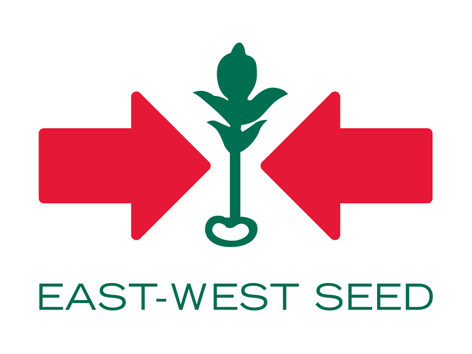Causal Agent:
Fungi (Colletotrichum gloeosporioides; Gibberella moniliformis spp.)
| Characteristic Symptoms: | |
 |
Affected leaves initially have small white sunken spots and eventually form a concentric ring pattern covered with orange spore mass. |
 |
Affected plants exhibit yellowing and twisting of leaves. |
 |
Neck becomes elongated and bulb size is reduced.
|
| Conditions for Disease Development: | |
 |
The pathogen is soil-borne and survives on plant debris for long periods of time.
|
 |
The disease is severe with prolonged humid conditions.
|
 |
Spores are disseminated by wind and rain splashes.
|
 |
Diseased plants are source of secondary inoculum, which spreads from plant to plant in the field.
|
 |
Wounding/bruising predisposes plants to infection.
|
| Management and Control: | |
 |
Use pathogen-free seed.
|
 |
Remove and destroy infected plants as soon as symptoms are observed to minimize spread of disease.
|
 |
Avoid prolonged moisture to minimize disease severity.
|
 |
Avoid wounding/injuries as this may predispose plants to infection.
|
 |
Crop rotation for 2-3 years may help reduce inoculum level in the soil.
|
 |
Drench nursery beds with fungicides like promocarb hydrochloride (e.g. ProplantⓇ, PrevicureⓇ) or fosetyl aluminum (e.g. AlietteⓇ), metalaxyl+mancozeb (e.g. Ridomil Gold MZ 68 WGⓇ, Apron XL 350 ESⓇ), mancozeb (e.g. Attain M-80Ⓡ, Achem Mancozeb 80 WPⓇ, Micron 80 WOⓇ, VanzebⓇ) to minimize incidence and prevent introduction of disease to the field. |
 |
Spray with difenoconazole (e.g. ScoreⓇ, MontanaⓇ, PursueⓇ, BashⓇ), difenoconazole+proficonazole (e.g. ArmureⓇ), Pyraclostrobin (e.g. Cabrio 25 ECⓇ), Bacillus subtilis strain QST 713 (e.g. Serenade®, Virtuoso®) and azoxystrobin (Amistar®, MiradorⓇ, RobatoⓇ) at the early onset of the disease to prevent further development and spread of the disease. |
To view other diseases, click here.
Need more help? Ask the Doctor.










